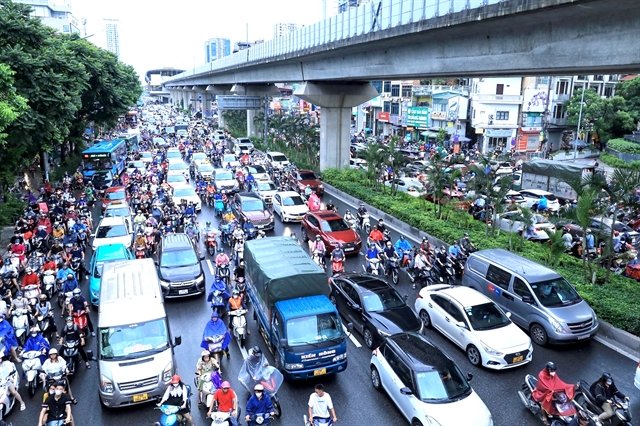Hanoi, May 23, 2025 – The Europe Today: Vietnam’s ambition to become a high-income nation by 2045 will require a transformative institutional overhaul, with a clear focus on enabling the private sector to spearhead economic growth and job creation, according to two new reports launched by the World Bank on Thursday.
Speaking at the release event, Mariam Sherman, World Bank Country Director for Vietnam, Cambodia, and Lao PDR, emphasized that while recent reforms signal a commitment to development goals, Vietnam must go further.
“Recent efforts show commitment, but achieving this goal will require even bolder reforms – an institutional ‘big push’ – to unlock the private sector’s potential to drive growth and create quality jobs for its people,” Sherman said.
The first report, “Việt Nam 2045: Breaking Through – Institutions for a High-Income Future,” underscores the importance of strengthening the legal and regulatory framework and improving public investment management. The report argues that sustained rapid growth is only possible with predictable, transparent institutions that foster confidence and competitiveness.
Key recommendations include:
- Enhancing public investment management through better project selection, implementation, and oversight.
- Establishing a predictable legal and regulatory environment.
- Increasing sub-national autonomy with accountability and improved coordination across provinces.
- Reforming civil service systems for greater efficiency, transparency, and oversight.
Economist Trần Đình Thiên, a member of the Prime Minister’s Advisory Council, stressed that the future of Việt Nam’s economy lies in the success of its private sector.
“The future of Vietnam’s high-income economy is essentially the future of its private sector. If this sector doesn’t experience significant breakthroughs, particularly in competitiveness, the high-income dream will remain distant,” Thiên stated.
He welcomed the government’s recognition of the private sector as the principal engine of growth but warned that rhetoric must translate into genuine reform.
“The key is not just calling it important – the crux lies in creating a truly free and enabling business environment where all players are guaranteed the right to reform and grow,” he said.
However, concerns remain over the current approach to institutional reform. Nguyễn Quốc Trường, Vice President of the National Institute for Economic – Financial Strategy and Policy under the Ministry of Finance, warned that a rapid, top-down reform process risks undermining stability.
“We’re building institutions and legal frameworks too rapidly and from the top down, without sufficient detection of problems. This could create uncertainties, especially as we restructure local governments, potentially stripping them of their economic centrality,” Trường cautioned.
Green Growth a Strategic Imperative
The second report, “Việt Nam 2045: Growing Greener – Pathways to a Resilient and Sustainable Future,” presents a stark assessment of the country’s vulnerability to climate change and the economic costs of inaction.
Without adaptation measures, climate impacts could shrink Việt Nam’s economic output by as much as 12.5 per cent by 2050. Already, around 75 per cent of manufacturers in key export sectors, including apparel and electronics, are located in high heat-stress zones, placing over 1.3 million jobs at risk.
Sherman stressed the urgency of action: “What matters now is putting in place the right mechanisms and incentives to encourage more adaptation by firms and households.”
Strategic investments in climate adaptation, if implemented effectively, could halve the projected GDP loss to 6.7 per cent by 2050. The report calls for the integration of climate risk management into all economic and infrastructure planning and points to significant growth opportunities in green energy and sustainable marine resource management.
Together, the two World Bank reports offer a comprehensive roadmap for Vietnam’s path to high-income status: one that rests on bold institutional reform, empowered local governance, and decisive action on climate resilience.














